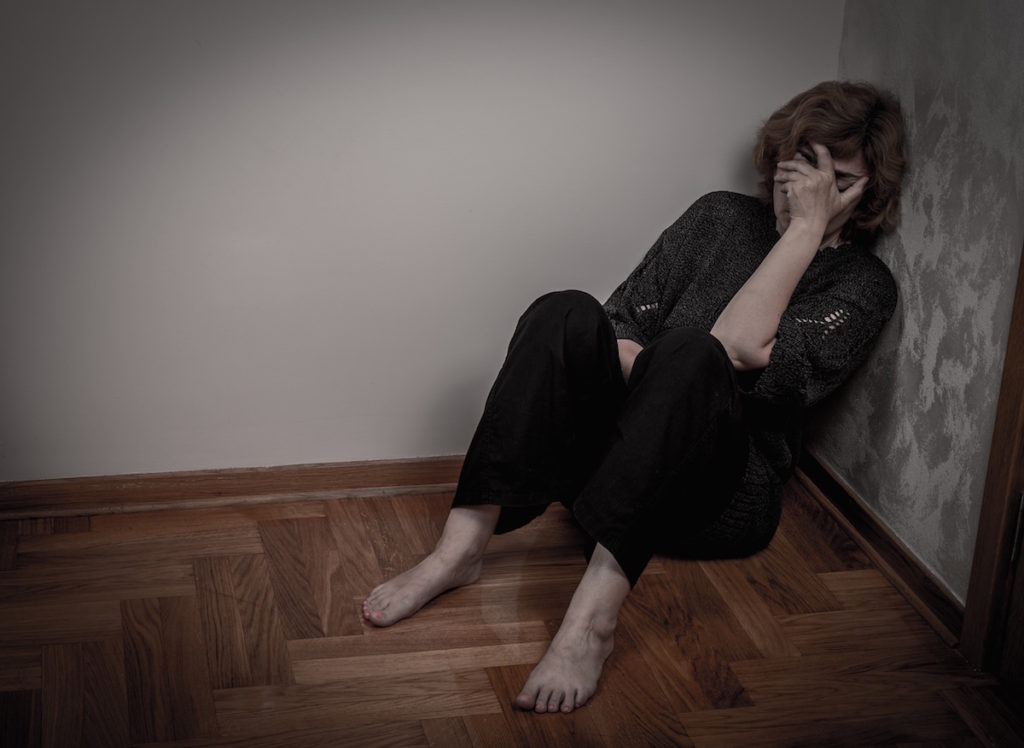Lorelie Rozzano is a guest blogger for Vertava Health.
Does The Addicted Person’s Family Suffer From PTSD?
I received a private message on Facebook from a woman who stated she was exhausted, heart-broken and desperate. Her son was dying. His addiction had caused serious heart disease and still, he continued to use. Kathy – not her real name – stated she had put her son back together more times than she could count. Kathy noted that her son wasn’t the only one with heart problems. Kathy had high blood pressure and was on medications. She was worried about the constant stress she lived under and feared she may have a stroke. Kathy wasn’t sleeping well and asked. “Is it possible I have PTSD?” I encouraged Kathy to seek medical attention. But she wouldn’t be put off. It seemed what Kathy really needed, was to talk. And talk, she did. As I listened, I noted Kathy had been waiting a long time to be heard. Kathy’s son is 40 years old and has only recently moved out of her home. For the last 20 years, he has lived in various other places but always returns home to Kathy when evicted or broke. Kathy said she has a love/hate relationship with her son. She loves him but doesn’t like him living off her and not helping out. Kathy has asked her son to mow the grass and fix things around the house. George – not his real name – promises Kathy he will, but never follows through with his promises. Kathy is 65 and says she is tired of picking up after him. Kathy also gave me an important piece of information. Kathy is afraid of her son. She says if she nags him too much, he explodes. Then it gets really bad. Sometimes George screams and swears at his mother and punches holes in the wall. One time, Kathy said she thought George was going to hit her. When it gets this bad in the home, Kathy says it’s just easier to give George what he wants. Kathy describes her relationship with her son as chaotic, intense and at times, terrifying. But is Kathy struggling with PTSD? PTSD is defined as a mental health condition that occurs when a person sees or experiences a terrifying event. Soldiers returning home from combat often struggle with PTSD. What they witness in the battlefield is horrifying. It is not my intention to diminish what our soldiers do. They are our heroes. But families are fighting a war too. Only it’s a silent one that lives behind closed doors. Watching someone you love die before you is traumatic. It is also incredibly stressful living on high alert and waiting for a phone call or a knock on the door to notify you, your loved one has died from an overdose. One Mom said she worked in the healthcare field for many years, but after watching her own son overdose, she has changed. She claims every time she hears a siren she loses her breath and feels panicky. Many parents with addicted children lose contact with them. During these periods, parents have no idea if their children are alive or dead. Parents also struggle with the suffocating guilt of turning their children out because they have nothing left to give. If you suffer from PTSD you will experience heightened anxiety and depression. You may have night terrors and startle easily. You might avoid social settings and people. This can result in isolation, further complicating matters. Kathy’s question is an important one. I asked Dr. Vincent, leading psychiatrist in the field of addiction and author of Diagnosing and Treating Addictions: An Integrated Approach to Substance Use Disorders and Concurrent Disorders, what his thoughts were. Here is his response. Hi Lorelie, “Can parents and family members develop PTSD from their loved one’s addiction?” In my opinion, the most concise answer is “absolutely!” A more sophisticated response would require a very in-depth review of diagnostic criteria according to DSM-V and the pending ICD 11, due for publication in 2017. It would also involve differentiation between PTSD and “complex PTSD” which is perhaps the best way to formulate PTSD in this context. The diagnosis involves exposure to “trauma” which can be either directly experienced or through more indirect exposure. There is absolutely no question in my mind that family members are traumatized through their intimate relationship with an addicted family member. The potential trauma may be wide ranging from physical violence, witnessing suicide attempts or accidental overdoses, extreme forms of intimidation and verbal use, awareness of involvement in gangs, prostitution or other illegal activities with potential for extreme negative consequences etc. The other criteria relates to a range of “symptoms” that are experienced by the family member in response to these traumatic events. There is considerable literature describing PTSD and its associated symptoms. It is very clear that there is a strong association between PTSD and addiction in individuals suffering from addictive disorders. There appears to be limited research and information regarding PTSD and family members as a result of their loved one’s disease. This appears to be a much-neglected area of research and knowledge. In conclusion to Dr. Vincent’s response, it appears we have only scratched the surface when it comes to families struggling with PTSD due to experiencing their loved one’s addiction. Working with the addicted person’s family it has long been my belief they are in shock, grieving and often used. When your loved one struggles with addiction, your focus is on them. This outward focus leaves family members unaware of their own mental, physical and emotional deterioration. The best thing you can ever do for your addicted loved one, is to practice self-care by looking after you. If you’re not sure how or where to go for support for PTSD, Vertava Health can help. If you or someone you know needs help, please call this confidential support line for assistance. 844-470-0410.


